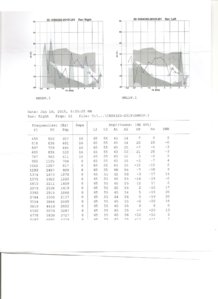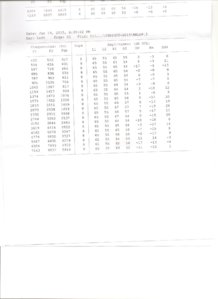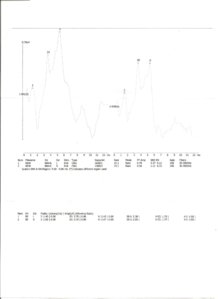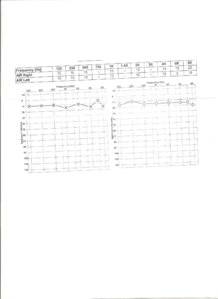- Nov 10, 2014
- 407
- Tinnitus Since
- 09/2014
- Cause of Tinnitus
- Acoustic trauma or mvc
Not knowing exactly where my Tinnitus is coming from (2 possible reasons), I decided to do a mixed treatment: Something that can do both good, considering I am still not a chronic case (3 and a half month since my acoustic trauma).
Now my real problems started in September 2014 when an alarm went off for about a minute and I didn't cover my ears for that time. I was close to it, so I just happened. The T in my right ear went crazy! Now I did have noticed T before, only I didn't give it much attention since it obviously wasn't that loud.
After trying corticoids, stugeron, vitamins, HBO therapy, to no avail, I made an MRI for the ears that gave some results: Microvascular compression of the VIII cranial nerve due to AICA pressure. This put me on a new track: The anticonvulsants. Neurontin was the first choice.
Now this drug Gabapentin (Neurontin) is a treatment choice for trimental neuralgia. Thus, having a similar condition such as microvascular compression of the acoustic nerve, it is recommended for that too. I myself cannot forget that acoustic trauma of mine, and a study for Neurontin that makes it good for acoustic trauma cases! http://www.ncbi.nlm.nih.gov/pubmed/16652071#
So I took it (3x300mg a day).
Sadly, I have to say that after 1 month zero results came from it. I may continue for a bit further, my doc said it could take months, I am also considering Tegretol as an alternative.
I will also try corticoids (weekly injections) and Gigko at the same time, to cover nerve/cochlear inflammation and possible cochlea regeneration. And also nerve vitamins, neurobion injection at first, pills later. All these in hope of covering both nerve and cochlea damage. As much as anyone can cover it...
I will not try other circulation drugs though (stugeron, antivom, betaistine) since they may conflict whith Neurontin or Tegretol.
In reply to a post from another topic that I transfer here:
I decided to try Tegretol because other people have had positive results with it, and because my doctor agreed to it due to my microvascular compression of the VIII cranial (auditory/cochlear) nerve.
I do not know of any doctor here who suggestes intratymbanic steroids. I don't know their results if any. And I have tried HBO therapy (15 sessions) with no success.
So, anyone that have a suggestion for this mixed kind of therapy is welcome to tell. Also, jow many of you have had your ears checked for signs of mvc (microvascular compression)?
I was wondering if it is a random finding, not really taking any part in Tinnitus. Since this forum is like an open source study, it would be useful to investigate the connection between mvc, Tinnitus and acoustic trauma.
Now my real problems started in September 2014 when an alarm went off for about a minute and I didn't cover my ears for that time. I was close to it, so I just happened. The T in my right ear went crazy! Now I did have noticed T before, only I didn't give it much attention since it obviously wasn't that loud.
After trying corticoids, stugeron, vitamins, HBO therapy, to no avail, I made an MRI for the ears that gave some results: Microvascular compression of the VIII cranial nerve due to AICA pressure. This put me on a new track: The anticonvulsants. Neurontin was the first choice.
Now this drug Gabapentin (Neurontin) is a treatment choice for trimental neuralgia. Thus, having a similar condition such as microvascular compression of the acoustic nerve, it is recommended for that too. I myself cannot forget that acoustic trauma of mine, and a study for Neurontin that makes it good for acoustic trauma cases! http://www.ncbi.nlm.nih.gov/pubmed/16652071#
So I took it (3x300mg a day).
Sadly, I have to say that after 1 month zero results came from it. I may continue for a bit further, my doc said it could take months, I am also considering Tegretol as an alternative.
I will also try corticoids (weekly injections) and Gigko at the same time, to cover nerve/cochlear inflammation and possible cochlea regeneration. And also nerve vitamins, neurobion injection at first, pills later. All these in hope of covering both nerve and cochlea damage. As much as anyone can cover it...
I will not try other circulation drugs though (stugeron, antivom, betaistine) since they may conflict whith Neurontin or Tegretol.
In reply to a post from another topic that I transfer here:
neurontin does not work for T can make more damage but no improvement.
You must target to cure not to hide with antiepileptics.
have you tried acetylcysteine / aminoacids / intratympanic steroids & HBO ?
40db is no possible hearing loss is definitive hearing loss especially if you not had it from birth.
If you had it from birth yes it is not hearing loss but if it happened some time ago then is sudden hearing loss probably from acoustic trauma and this deaferentation is the cause of your T escpecially if your T is on he same frequencies of starting hearing loss and is like pure tone.
I decided to try Tegretol because other people have had positive results with it, and because my doctor agreed to it due to my microvascular compression of the VIII cranial (auditory/cochlear) nerve.
I do not know of any doctor here who suggestes intratymbanic steroids. I don't know their results if any. And I have tried HBO therapy (15 sessions) with no success.
So, anyone that have a suggestion for this mixed kind of therapy is welcome to tell. Also, jow many of you have had your ears checked for signs of mvc (microvascular compression)?
I was wondering if it is a random finding, not really taking any part in Tinnitus. Since this forum is like an open source study, it would be useful to investigate the connection between mvc, Tinnitus and acoustic trauma.

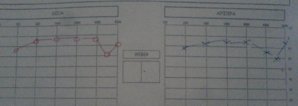
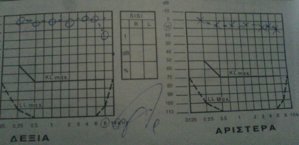
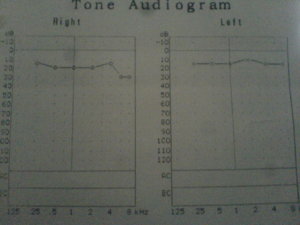
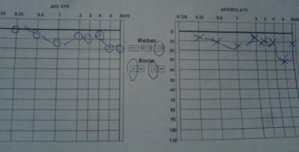
 right? Is this a known treatment? Haven't heard of it. In what dosage should these 2 (pentoxyfilline/piracetam) be used?
right? Is this a known treatment? Haven't heard of it. In what dosage should these 2 (pentoxyfilline/piracetam) be used? Member
Member